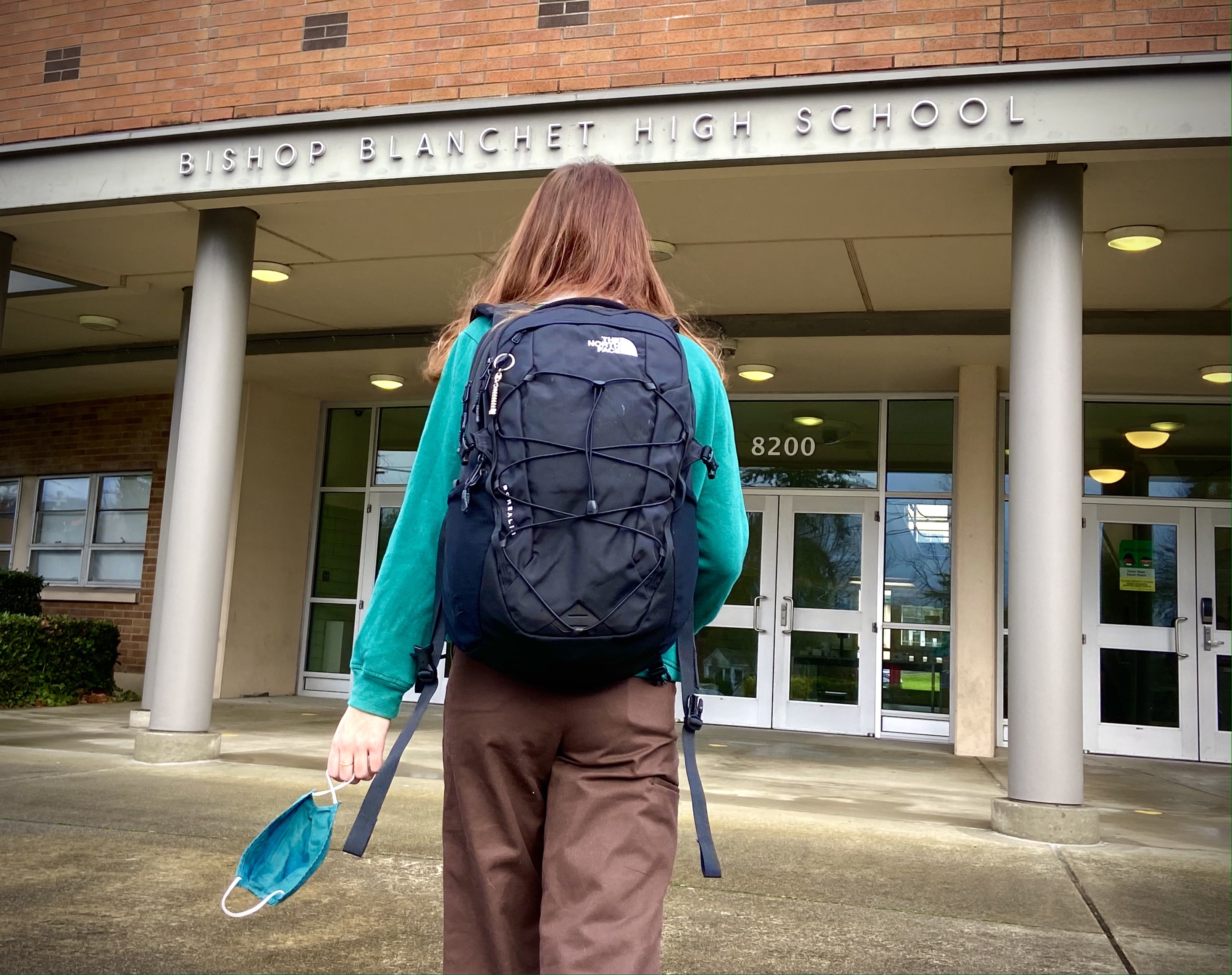
New year, new life, new education. Many of the private high schools in Seattle plan to resume in-person learning this month. O’Dea, University Prep, Seattle Prep, and Bishop Blanchet students will finally get to leave their bedrooms to be educated alongside their classmates. Well, as long as they are six feet apart and wearing masks.
Bishop Blanchet High School announced that they will be back in school by the first of February. They will start with 25% of students returning to in-person learning, while simultaneously, the other 75% will continue remote learning. The entire student body will alternate the days they go into school so that each student attends in-person classes one day per week. By February 18, Blanchet plans to have 50% of the student body attending in-person classes each day.
And public schools? Well, public high schools haven’t gotten that far yet. According to Seattle Public Schools, students in preschool, kindergarten, and first grade, as well as students enrolled in Special Education Intensive Service Pathways, will have the option to return to in-person learning on the first of March. However, all other public school students in grade second or higher will continue with online classes.
That leaves many parents wondering: with the lack of progress in public schools, should parents with the resources consider switching their children to private school for education during COVID-19?
Online classes leave room for error. Many of the course curriculums have been reduced along with the class time. Online education has burdened students with the new responsibility and stress of self-organizing and self-disciplining. Students are expected to manage their online school life while isolated in our homes and away from our peers, using slow computers and spotty wifi.
Many students have the challenge of finding a productive work environment within their home. “I have two working parents and a sister in college, who are living at home right now,” Cate Ingraham, Roosevelt junior, says. “It’s hard to find a quiet place to work productively. I feel like in school we had more structure and more help from teachers in class, [which] I really needed in order to be a successful student,” says Ingraham.
Roosevelt High School conducts three 50-minute online classes per day, excluding all Wednesdays. This means that in a week, students have each period only twice. Afternoons are designated for assignments, projects, and tests. By the first of February, Roosevelt students will be working alone in their beds, while a school less than two miles away, Bishop Blanchet, will have students roaming the halls, headed to their next class.
Blanchet freshman, Ally Dobbalere, says that she is excited to go back into school because online learning has been a struggle. Especially in the first year of high school, it’s important to experience the real world environment.
Each private school has the liberty to control their decisions, unlike Seattle’s public schools. With higher graduation and four-year college acceptance rates, private education institutions say they will do what is best for your student. Because they are separate from the public school system, they can push to get kids back in school if that’s what families and students feel is best.
So the short answer is yes, enrolling your child in private school is an excellent decision— if you have the financial means to do so.
The problem is that not everyone can afford such a luxury. Private high schools in Seattle cost thousands of dollars— up to $38,400 per year according to The Seattle Times— and paying that much for a high school education is not a realistic possibility for most families. This results in an inequity in students’ education based on income — a gross reality that will most likely create a greater divide in grades, test scores, and access to educational help, including the college application process.
Financial inequities are already a major factor in a student’s performance and success rates. Access to resources like paid private tutors and prep courses set your child ahead of the rest.
So is it worth it to go to private school? If you can afford to be that top one percent, yes, you’ll have a major advantage over students continuing to learn online. Is it fair? No, but that seems to be the trend in American school systems. More money, more success.